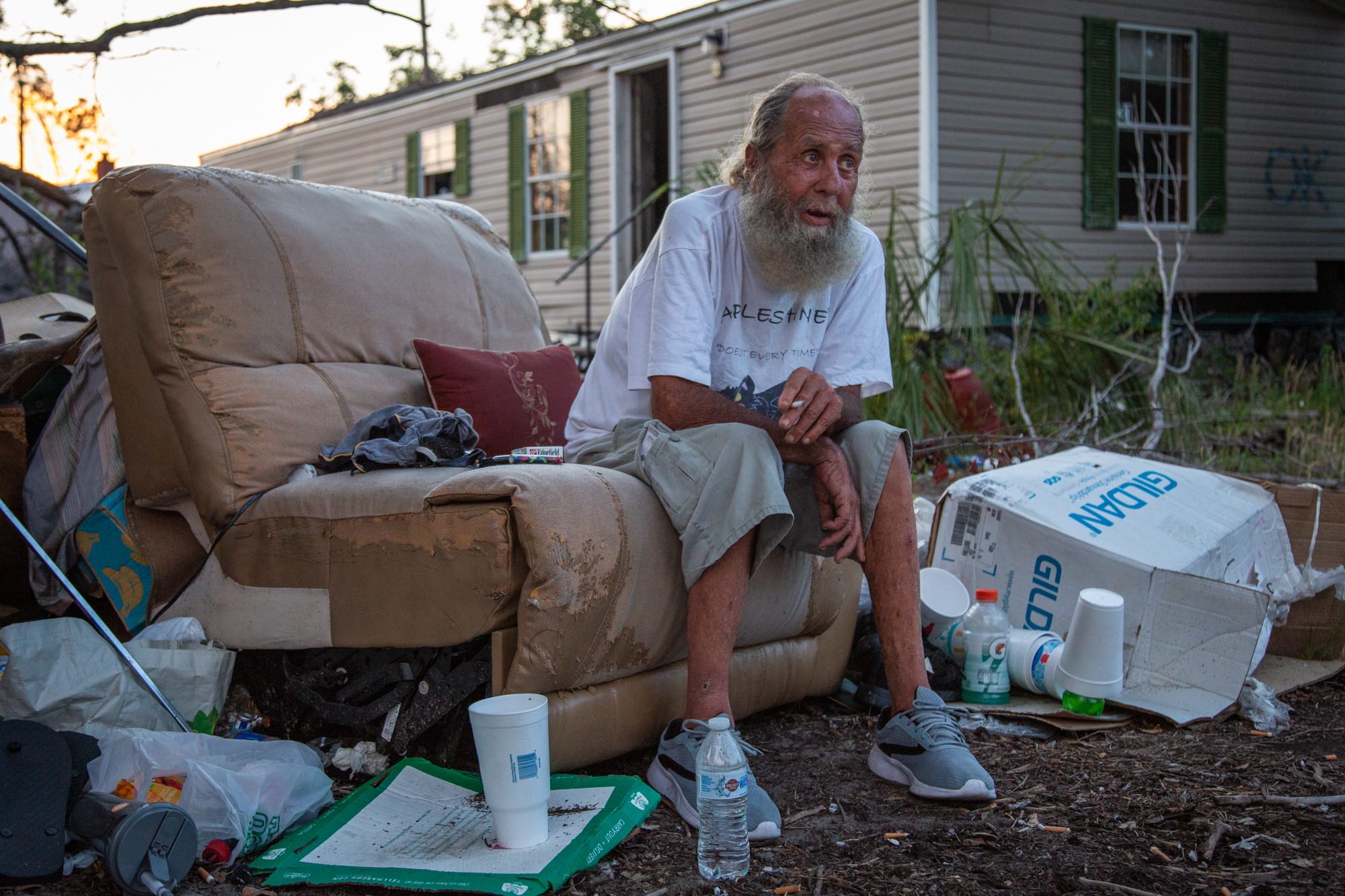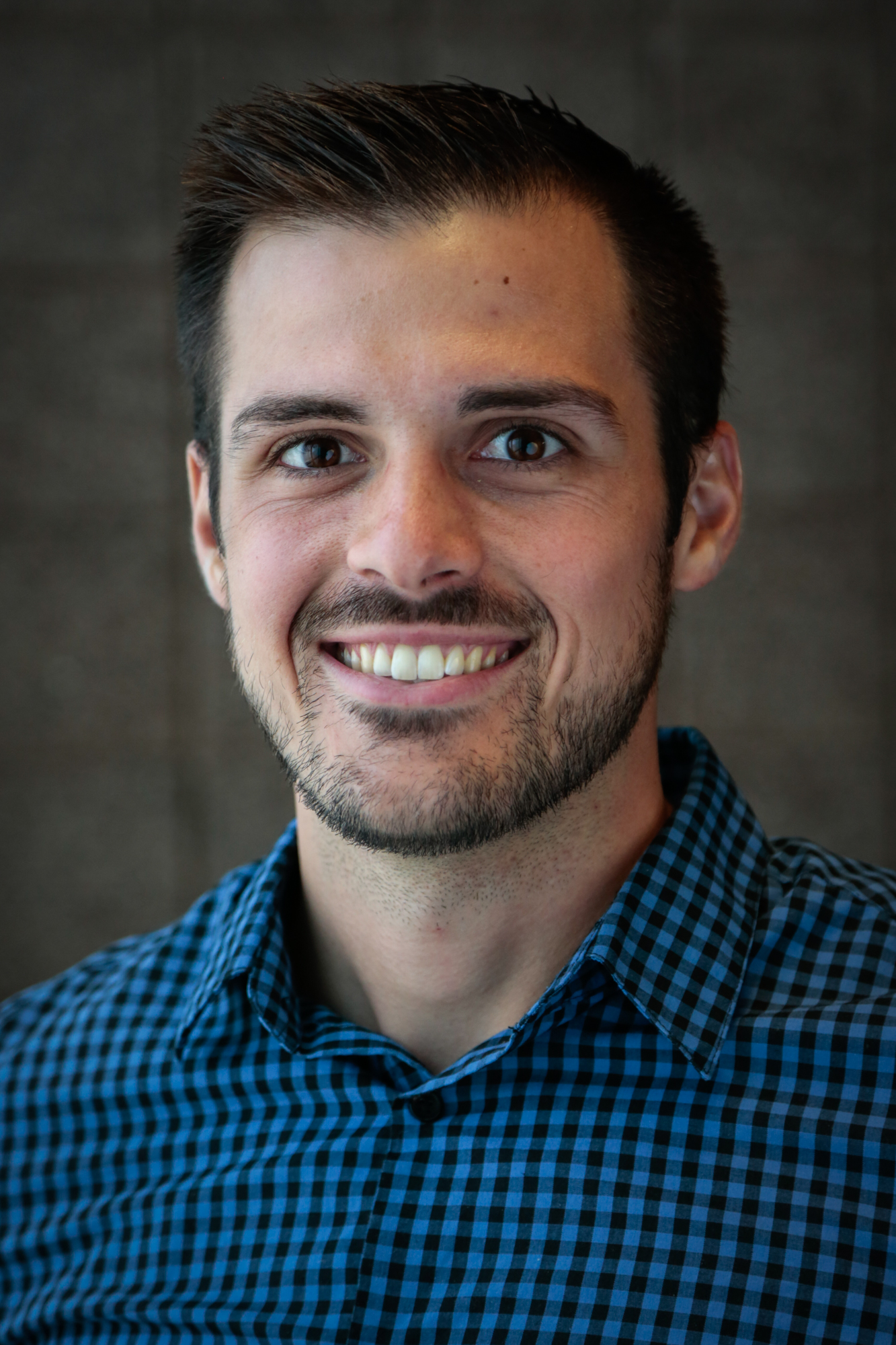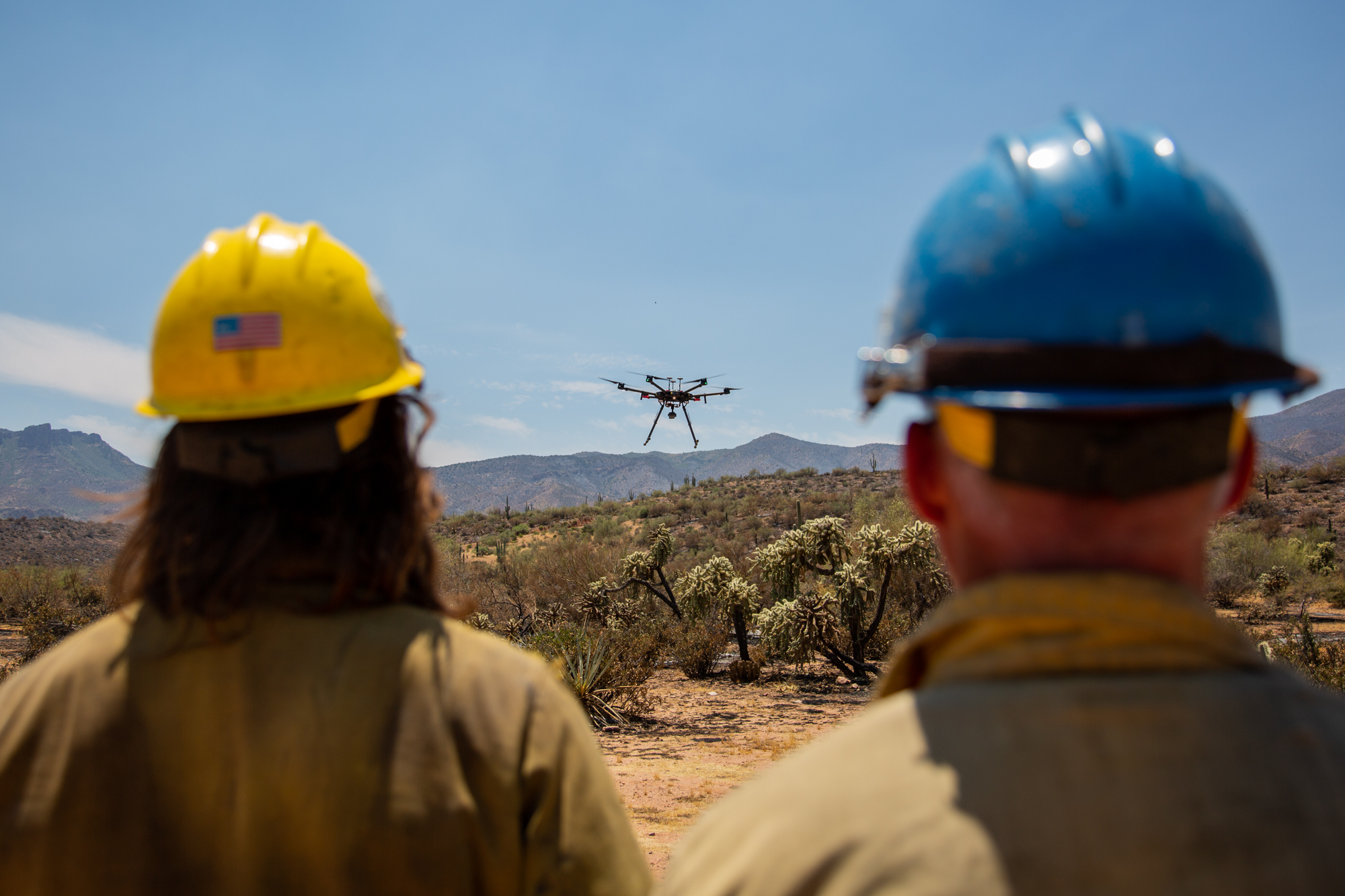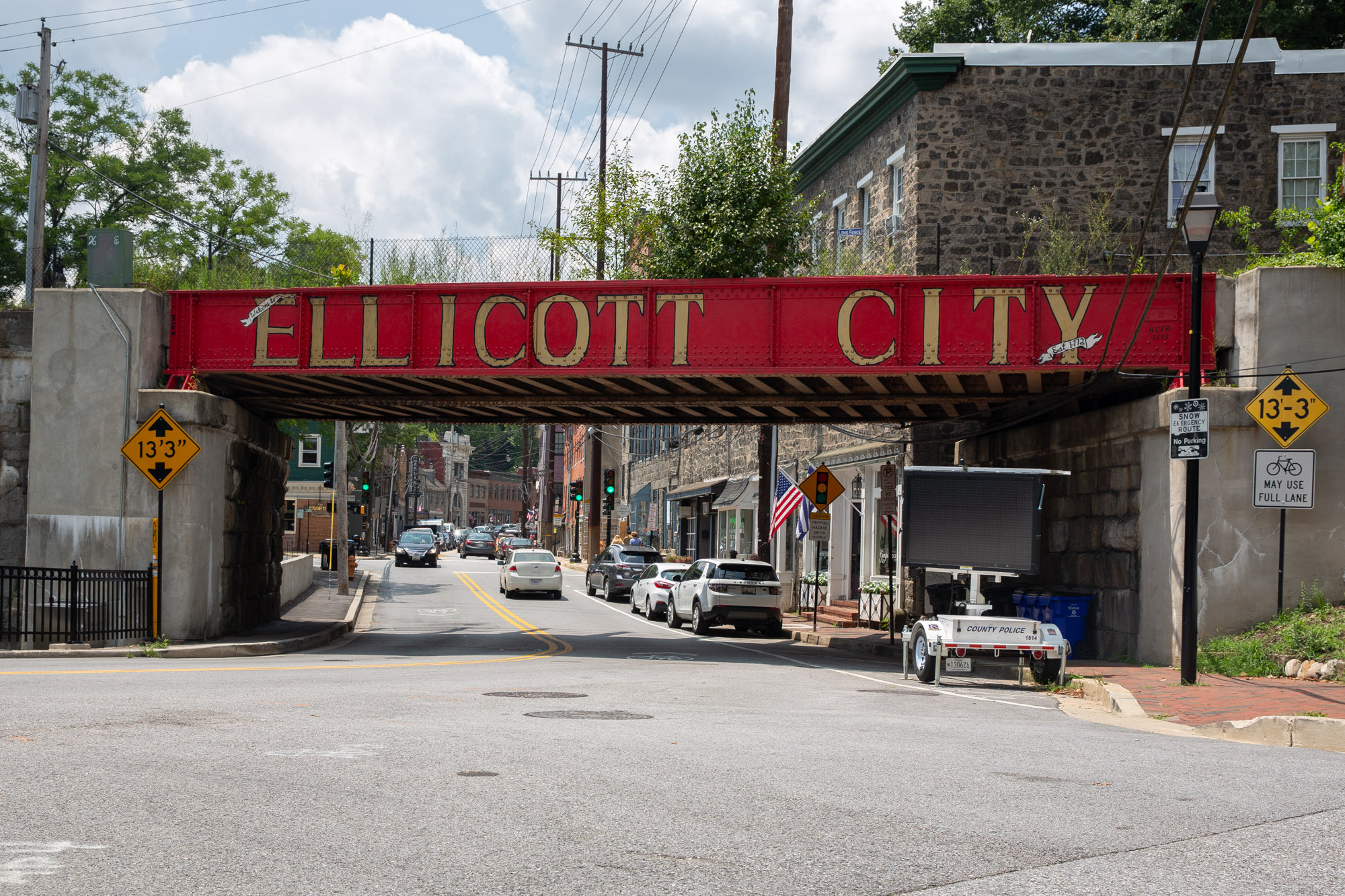LYNN HAVEN, Fla. – As the sun began to set over Lynn Haven, Florida, Phillip Ingram settled into his love seat, cigarette in hand.
While many Americans spend their evenings in their living rooms, absorbing the warm glow of television or enjoying the company of others, Ingram doesn’t have that option.
The 66-year-old hasn’t had the option since Hurricane Michael nine months ago.
Since the storm, his living room is now the space beside the road that runs through the heart of Lynn Haven Mobile Home Park, reclined into the tattered furniture that remains there.
On Oct. 10, 2018, Hurricane Michael destroyed Ingram’s trailer when the storm rolled in off the Gulf Coast and forever changed the Florida Panhandle. In fact, only a few of the 47 trailers in the Lynn Haven Mobile Home Park are still in anything close to livable condition.
“After Michael, we told them we can’t repair anything, we can’t do anything,” said Sher Hay, the property manager of Lynn Haven Mobile Home Park. “None of this is fixable.”
The Panama City area is facing a housing crisis that has put the community in an economic bind. While the area depends on tourism for a significant portion of its economy, locals throughout the area said that wages earned waiting tables, working at hotels and running tourism excursions is hardly enough to afford inflated rental prices that are partially caused by the need to house visitors to the beach while the rest of the city recovers.
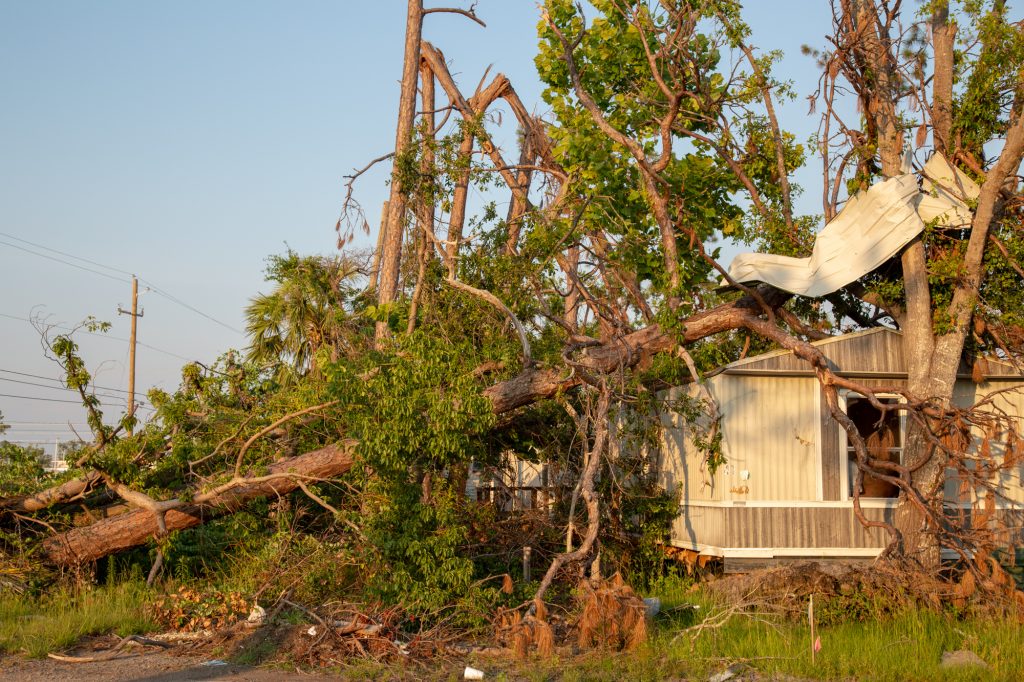
Ingram was once a fisherman. The nearby coast offered plenty of work for him at that time and the tourist-centric Panama City Beach guaranteed a high demand for his services. Now, that same tourism industry is contributing to a housing crisis that resulted in Ingram, because of his age, facing homelessness for the first time in his life.
He relies on disability checks to cover his living expenses. But with housing in the Panama City area at a premium due to inflated rental rates, he said he is no longer able to afford housing on his income.
“There’s plenty of places to live, but they want to charge what they can charge,” Ingram said.
Albert Byrd, 19, lives in the same trailer park as Ingram. His home withstood the storm, and despite being damaged significantly, it is one of a handful of remaining units that is still occupied.
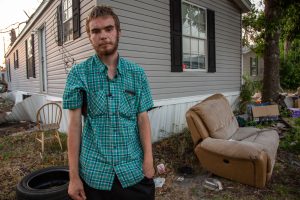
“Now, everything is pretty much gone,” Byrd said. “Everything I’ve ever known, everything I’ve ever loved.”
Byrd was born and raised in Lynn Haven, in the same trailer he now shares with his mother. But not for long. Byrd and Ingram, along with all residents still living in the trailer park, are being evicted.
They have until August of this year to move out or they will face eviction, according to Hay, the mobile home park’s property manager.
“People were very angry, and I understand,” Hay said. “But, you don’t have to be angry with me about it. You need to be angry with whatever supreme being you believe in, or Mother Nature, or whatever. Because I didn’t create Michael, I promise.”
Since the storm ripped through Lynn Haven in October, Hay said that most of the park has been without water, sewage and electricity. She refunded deposits to all tenants after the storm on the condition that they would have to move out. Hay said she hasn’t collected any rent since the storm hit in October 2018.
Despite the lack of facilities and request for them to vacate, several tenants stayed in the park. Squatters and looters flocked to the area as well, according to Hay.
She, along with her family, runs Al Harlen Rentals and own several other rental properties throughout the area. With no insurance and no choice to rebuild, the Lynn Haven Mobile Home Park is currently for sale, Hay said.
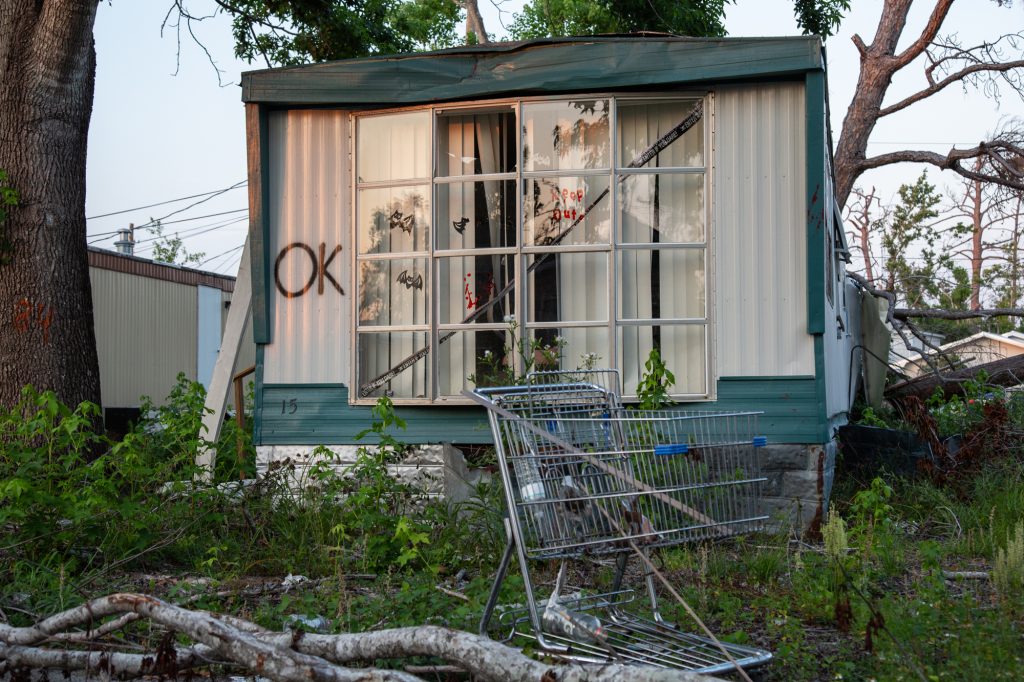
Upon eviction, tenants will be thrust into a seller’s market, she said.
“It is high,” Hay said. “Most people’s rents are very, very high right now and there is no low-income housing to speak of, because most of that was low-end built, also, and Michael just tore it to shreds.”
Hay recognized that it is unlikely that anyone displaced from the mobile home park will be able to find comparable housing in the area for close to the same price they paid before the storm.
“I know it’s very difficult to find housing right now,” Hay said.
But is it possible?
“Probably not,” Hay added. “No.”
Nine months after the storm, Ingram remains homeless. Without a home — or the means to find another one — he spends his nights outside of the trailer where he once lived, nestled in to a faded sofa, surrounded by downed trees and dilapidated homes. Holding his un-ashed cigarette, he said he thinks about how life used to be.
Jake Goodrick is a recent graduate of the Walter Cronkite School of Journalism and Mass Communication at Arizona State University, earning a master’s degree in sports journalism. Before Cronkite, he graduated summa cum laude from Cleveland State University with a bachelor’s degree in psychology. As a reporter for Cronkite News and Arizona PBS, Goodrick covered the Phoenix Suns, ASU men’s basketball and the Chicago White Sox. His work can be found in The Arizona Republic, Indian Country Today, The Navajo Times and MLB.com.
